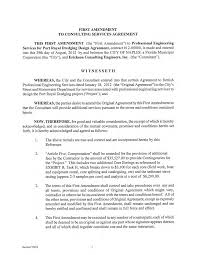
The public sector is made up of a range of services and organizations that work on behalf of the public. It is also known under the name of the state sector. We will define and describe the functions of this public sector. We'll also discuss the challenges that change leaders and public sector organizations face. We'll discuss how to overcome these obstacles in this article.
Definition of the public service
The variety of public sectors makes it difficult to define the public industry. However, the IIA has clarified the concept by defining it as government, publicly controlled agencies, and publicly-funded enterprises (PFEs), including organizations that deliver public goods, programs, and services. The guidance is based upon specific criteria that define the public or private sectors and for classifying organizations.
Private companies, on the other hand, are profit-oriented and compete for consumer dollars. They are typically organized as partnerships and sole proprietorships. The public sector, on the other side, has the power to make laws or enforce policies. These policies can have an impact on the economy, people, and international relations.

Functions of government
The public sector performs a wide range of functions that benefit the community. For example, public utilities provide essential services like electricity. Additionally, public transportation facilities offer many transportation options. Many social services operate in a public sector format. These include public housing, food banks, and health care.
Analytical functions can be provided by the public sector agencies. They enable us to compare public sector activities with those of third and private sectors. This allows us, for example, to draw maps of state activities and compare them across space. It also highlights distinctive patterns or operating procedures.
Leadership in the public sector: Challenges
Leaders in the UK face many challenges as the public sector experiences significant changes. These include meeting citizens' demands, driving inclusive economic growth and managing the effects of the UK's exit from the European Union. The following three drivers can be identified from a close examination of current trends.
Financial pressures. Finance and funding have been a major concern of public officials for many years. While the government strives to increase efficiency and productivity, it must also protect resources and maintain a workforce. Recent GSCU delegate surveys identified funding and finance as the greatest challenges facing public sector change leaders. Management and recruitment are also issues.

Public-sector Organizations Face Challenges
There are many issues facing the public sector today. Staff shortages, unmet client demands, employee stress and workplace burnout are some of the challenges that public sector organizations face today. These issues can make it difficult for leaders in the public sector to create a positive environment and keep talented employees. Low tax bases can make it difficult for the public sector to provide promised services.
Technology solutions can help public sector organizations modernize and preserve data stored in legacy systems. Cloud-based software such Office365 can be used by public sector agencies to provide collaboration tools for employees that were previously difficult to access. These solutions can be tailored to individual needs, and they're also far more affordable than rebuilding traditional on-premises solutions. These solutions can also be tailored to individual needs, making it easier for public servants and others to offer more personalized and intelligent experiences to their constituents.
FAQ
Do I have to pay tax on consulting income
Yes. You will have to pay taxes on your consulting profits. This amount will depend on how much you earn each year.
If you are self employed, you can claim expenses in addition to your salary. This includes rent and childcare.
But you won't be able to deduct interest payments on loans, vehicle depreciation, or the cost of equipment.
You can only claim back 25% of your expenses if you earn less than PS10,000 a year.
But even if you're earning more than this threshold, you might still be taxed depending on whether you're classed as a contractor or employee.
Employees are generally taxed through PAYE (pay as you earn) and contractors through VAT.
How can I start an LLC consulting company?
You must first figure out what you want to do as a service provider. You must then ensure you are qualified to offer those services. It may be a good idea to seek out someone who offers the services you need and observe their work.
Once you have a clear idea of what you are offering, you can start to identify your target market. If they aren't available, you may need them to be created.
You then have to decide whether or not you want to open your own company, or hire other people to do it.
Another option is to get a state license. This requires a lot of paperwork and legal fees.
Can anyone be an advisor?
Consultants are people who help you reach your goals by giving advice about how to make it better, faster, or cheaper.
Consultants can help you resolve problems, make decisions, and negotiate with other people.
Consultants can be hired to assist with specific tasks or projects.
In fact, most consultants are paid hourly or daily rates rather than per project.
What can I expect from my consultant?
Within a few days of selecting your consultant, you can expect to hear back. They will request information about your company including its mission and goals, products, services, budget, and other pertinent details. They will then send you a proposal that outlines the scope of work and estimates timeframe, fees, deliverables, milestones and other details.
If everything is in order, then the parties will enter into a written contract. The type of relationship between them (e.g. employer-employee or employer-independent contractor) will determine the terms of the contract.
If everything goes smoothly, the consultant can begin work immediately. S/he will have access to your internal documents and resources, and you'll have access to his/her skills and knowledge.
Don't assume that someone who is a consultant knows everything. It takes time and practice to become an expert on any subject you consult. You shouldn't expect your consultant will know everything you need to know about your business.
Statistics
- According to IBISWorld, revenues in the consulting industry will exceed $261 billion in 2020. (nerdwallet.com)
- Over 62% of consultants were dissatisfied with their former jobs before starting their consulting business. (consultingsuccess.com)
- WHY choose me: Why your ideal client should choose you (ex: 10 years of experience and 6-week program has helped over 20 clients boost their sales by an average of 33% in 6 months). (consultingsuccess.com)
- So, if you help your clients increase their sales by 33%, then use a word like “revolution” instead of “increase.” (consultingsuccess.com)
- My 10 years of experience and 6-step program have helped over 20 clients boost their sales by an average of 33% in 6 months. (consultingsuccess.com)
External Links
How To
How can I start a consultancy business with no money?
It's easy and cost-effective to start your own consulting business without capital investment.
You'll learn how you can make money online, increase your skills, earn more cash and be successful.
I'll share my secrets for generating traffic on demand, particularly when people search for something specific.
This method is known as "Targeted Traffic". This method was designed specifically for you to do this...
-
Find what niche you want to work in.
-
To find the best solutions on Google, research which keywords people are using.
-
Write content around these keywords.
-
Post your articles on article directories.
-
Promote your articles using social media.
-
Develop relationships with experts in the niche and influencers.
-
You can be featured on these websites and blogs.
-
Sending emails can help you grow your email list.
-
Start making money.